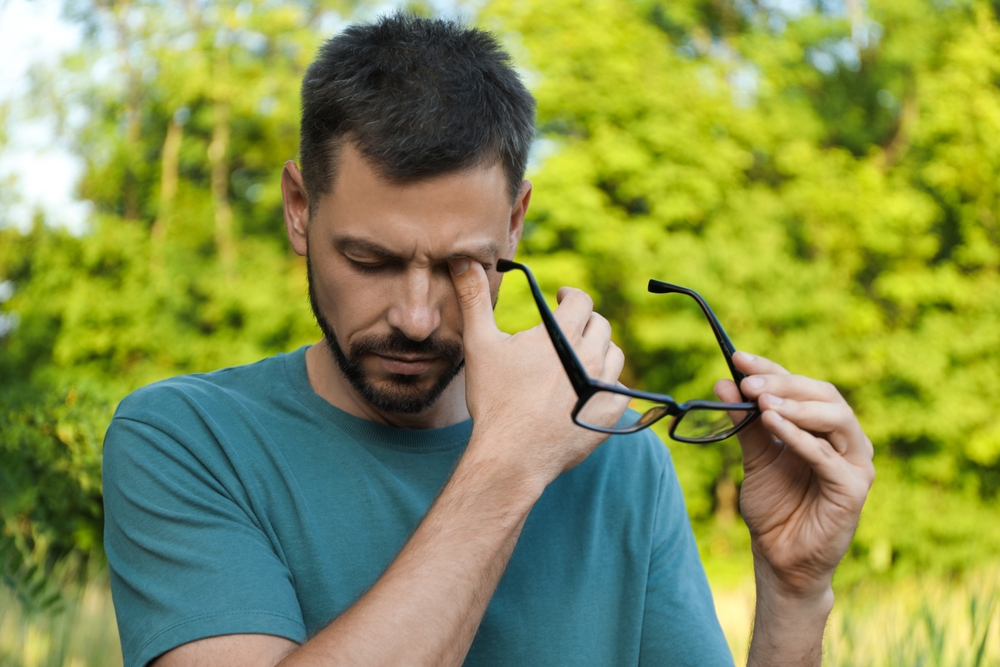How Are Dry Eyes Diagnosed and Treated?
Blog:How Are Dry Eyes Diagnosed and Treated?

How Are Dry Eyes Diagnosed and Treated?
How Are Dry Eyes Diagnosed and Treated?
Dry eye syndrome is a common condition affecting millions of people worldwide. Characterized by a lack of sufficient moisture on the surface of the eyes, it can lead to discomfort, irritation, and even vision problems if left untreated. If you’re experiencing symptoms of dry eyes, such as redness, burning, or a gritty feeling, it’s essential to understand how dry eyes are diagnosed and treated. At Texas State Optical, we use advanced techniques to identify the root cause of your dry eyes and offer effective treatment solutions tailored to your needs.
Diagnosing Dry Eye Syndrome
Dry eyes can occur for various reasons, from aging and environmental factors to underlying medical conditions or long-term contact lens use. Proper diagnosis is critical for determining the best treatment plan.
1. Comprehensive Eye Exam
During your initial visit, our optometrists will conduct a thorough eye examination. This will help rule out other eye conditions and evaluate your overall eye health. We will ask about your symptoms, lifestyle, and any medications you're taking, as these can contribute to dry eyes.
2. Tear Film Evaluation
Tears are essential for maintaining moisture and protecting your eyes. We may perform a tear film evaluation to assess the quality and quantity of your tears. A healthy tear film has three layers: oil, water, and mucin. If any layer is compromised, it can result in dry eyes. A tear break-up time (TBUT) test may be conducted to measure how long it takes for tears to evaporate from the surface of the eye.
4. Ocular Surface Staining
We use special dyes, such as fluorescein, to highlight damage or dryness on the surface of your eyes. These dyes make it easier to see any areas where the surface is dry or irritated, allowing us to pinpoint the severity of the condition.
5. Meibomian Gland Function
Meibomian glands play a crucial role in producing the oil that prevents tears from evaporating too quickly. If these glands are blocked or not functioning correctly, you may have evaporative dry eye. We may evaluate the function of these glands to assess if this is a contributing factor to your condition.
Treating Dry Eye Syndrome
Once a diagnosis is made, our optometrists will recommend a personalized treatment plan. Treatments for dry eyes vary depending on the severity of the condition and its underlying cause.
• Artificial Tears: For mild cases of dry eyes, over-the-counter artificial tears or lubricating eye drops can provide quick relief by adding moisture to the eyes. These drops are available in different formulations, and our optometrists can recommend the best option for your specific needs.
• Prescription Eye Drops: If your dry eyes are more severe or linked to inflammation, prescription eye drops or steroid eye drops may be recommended. These medications help reduce inflammation, improve tear production, and promote long-term relief.
• Punctal Plugs: For those with chronic dry eyes, punctal plugs may be an effective solution. These tiny, biocompatible plugs are inserted into your tear ducts to block drainage, helping tears stay on the surface of the eyes longer. This is a simple, painless procedure that can significantly improve moisture levels.
• Lid Hygiene: In some cases, improving eyelid hygiene can help reduce dry eye symptoms. We may recommend using warm compresses, eyelid scrubs, or medicated wipes to clean your eyelids and prevent debris or bacteria from causing irritation.
• Diet and Supplements: A diet rich in omega-3 fatty acids can promote tear production and improve the quality of your tears. We may recommend incorporating omega-3 supplements into your routine to help alleviate dry eye symptoms.
Schedule Your Dry Eye Evaluation with Texas State Optical Today
If you’re struggling with dry eyes, the first step to relief is an accurate diagnosis. At Texas State Optical, our experienced optometrists are here to provide expert care and recommend the most effective treatment options for your condition. Whether you need artificial tears, prescription medications, or advanced therapies, we’ll work with you to ensure your eyes stay healthy and comfortable.
Don’t let dry eyes interfere with your quality of life, schedule a comprehensive eye evaluation with Texas State Optical to find out how we can help you achieve lasting relief from dry eyes. Visit our office in Brenham, Texas, or call (979) 836-1077 to book an appointment today.


